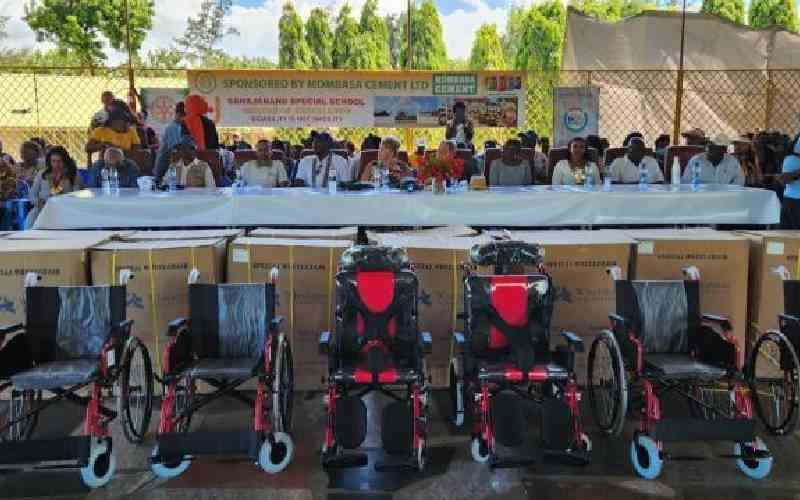Leveraging Data for Africa's Progress - Businessday NG
Data collection is crucial for steering development in Africa. It provides the basis for informed policy-making to stimulate economic growth and combat pressing social challenges. The article stresses the importance of gathering and analysing data to facilitate sustainable advancement and positive transformation in African communities.
By systematically gathering and interpreting data, policymakers and stakeholders can gain valuable insights that inform the development of evidence-based strategies tailored to the unique needs and challenges of African nations. Whether related to healthcare, education, infrastructure development, or environmental conservation, data is a crucial tool for identifying key areas for intervention, setting benchmarks for progress, and efficiently allocating resources to maximise impact.
Data-driven decision-making improves transparency, accountability, and effectiveness in governance, resulting in more inclusive and equitable development outcomes. By leveraging data analytics, governments and organizations can better understand complex socio-economic issues, anticipate emerging trends, and respond quickly to crises or challenges. This approach fosters resilience and promotes sustainable development throughout Africa.
The comprehensive use of data, as highlighted in the article, emphasizes its transformative potential as a catalyst for progress in Africa. By recognizing data as a fundamental driver of development, stakeholders can harness its power to unlock new opportunities, foster innovation, and create a more prosperous and resilient future for the continent and its people.
Data acts as a powerful tool for policymakers, allowing them to identify priority areas for intervention and monitor progress toward development goals with precision and transparency. Through the systematic collection of accurate and reliable data, governments and development organizations can gain a thorough understanding of the complex needs and challenges facing their populations. This understanding paves the way for more targeted and effective interventions that can drive positive change.
When data is effectively used in decision-making processes, policymakers gain valuable insights that help them prioritize interventions for the most pressing issues in their communities. By analyzing data trends and patterns, decision-makers can pinpoint areas where resources are urgently needed and allocate them accordingly to maximize impact and achieve sustainable development goals. This focused approach not only optimizes the use of limited resources but also ensures that interventions are specifically tailored to meet the unique needs of the population, thereby enhancing their effectiveness and relevance.
Moreover, by monitoring progress toward development goals through data analysis, policymakers can assess the impact of their interventions over time and make necessary adjustments to ensure that objectives are met. Data-driven monitoring provides real-time feedback on the effectiveness of programs and policies, allowing decision-makers to adapt their strategies in response to emerging challenges or changing circumstances. This flexibility is essential for ensuring that development efforts remain responsive to the evolving needs of populations and continue to foster positive change in a sustainable way.
The use of data in decision-making processes significantly improves the efficiency and effectiveness of interventions while also fostering accountability, transparency, and evidence-based policymaking. By leveraging data to inform their decisions, policymakers can develop more targeted, impactful, and sustainable initiatives that have the potential to positively transform the lives of individuals and communities.
However, despite the clear advantages of data collection and analysis in driving development in Africa, the continent faces considerable challenges. Limited infrastructure, a lack of resources, and capacity constraints create serious obstacles to the effective collection and use of data. These barriers hinder evidence-based decision-making and impede progress in addressing critical social and economic issues.
The lack of adequate infrastructure, such as reliable internet connectivity and technological tools, in many parts of Africa poses a significant challenge to data collection efforts. This can hinder the timely and accurate collection of data, limiting the availability of crucial information needed to inform policy decisions and drive development initiatives.
Similarly, the scarcity of resources, including funding and skilled personnel, further exacerbates the challenges of data collection, analysis, and interpretation. Without adequate financial and human resources, governments and organizations may struggle to implement robust data collection systems and sustain data-driven efforts to promote development and innovation.
Capacity constraints, such as a shortage of trained personnel and technical expertise in data collection and analysis, present additional challenges to effectively leveraging data for development in Africa. It is crucial to build and strengthen the capabilities of individuals and institutions to collect, manage, and analyze data. This ensures the accuracy, reliability, and relevance of data-driven insights that inform decision-making processes. Addressing these capacity gaps through training programs, knowledge-sharing initiatives, and partnerships with academic and research institutions is essential for improving the quality and utility of the data collected in the region.
In addition to these challenges, issues related to data privacy, security, and transparency must be carefully considered and addressed to protect the integrity and ethical use of data in development efforts. It is essential to collect, store, and share data securely and responsibly to safeguard the privacy and rights of individuals and communities.
Transparency in data collection and management is essential for building trust and accountability among stakeholders involved in development initiatives. By creating strong data governance frameworks and following best practices in data management, policymakers and organizations can reduce the risks of data misuse and ensure that data is used ethically and in the best interest of the population.
In Africa, data collection presents valuable prospects for advancing development and growth. However, it is vital to tackle challenges such as inadequate infrastructure, resource limitations, capacity shortfalls, and privacy issues. These actions are pivotal for maximising the impact of data in achieving sustainable development goals continent-wide. Through investments in enhancing data collection abilities, strengthening data security and transparency, and advocating for ethical data practices, African nations can surmount these obstacles. This will empower them to utilise data as a potent instrument for making informed decisions, devising effective policies, and fostering inclusive development results.
Despite the challenges encountered in data collection in Africa, there are substantial opportunities to utilise data to propel development and stimulate innovation throughout the continent. The rapid expansion of mobile technology and the widespread embrace of digital platforms have transformed the terrain of data collection and analysis, offering fresh pathways for collecting and interpreting information from various sources. The growing connectivity and availability facilitated by mobile devices have democratised data collection, allowing for a more extensive and inclusive method of capturing insights and trends that can guide policy choices and development plans.
The widespread use of mobile phones and digital platforms has not only facilitated data collection but has also opened up avenues for real-time monitoring and evaluation of development initiatives in Africa. Through mobile surveys, social media analytics, and data collection apps, governments, NGOs, and development organizations can collect timely and relevant data on a wide range of social, economic, and environmental indicators. This real-time data collection capability enables policymakers to track progress towards development goals, identify emerging challenges, and make informed decisions based on up-to-date information, leading to more effective and responsive interventions.
In addition, the adoption of data analytics and machine learning technologies offers significant potential for unlocking fresh avenues for growth and innovation in Africa. Through the utilisation of data analytics, organisations can extract valuable insights from vast and intricate datasets, revealing patterns, trends, and relationships that can guide strategic decision-making and instigate transformative progress. Insights derived from data can pinpoint unexplored market opportunities, optimise resource distribution, and formulate targeted interventions that address the distinct requirements and challenges encountered by African communities.
Furthermore, the innovative use of data, including predictive modelling, geospatial analysis, and impact evaluation, can empower Africa to develop sustainable solutions to critical social and economic issues. By leveraging data to predict future trends, map out vulnerable populations, and evaluate the effects of interventions, policymakers and development professionals can design more efficient and targeted programmes that bring tangible benefits to those in need.
Data-led approaches enhance the efficacy of development endeavours and promote transparency, accountability, and evidence-based decision-making, ultimately culminating in more sustainable and impactful outcomes.
Despite the ongoing challenges in data collection across Africa, the opportunities offered by the rise of mobile technology, digital platforms, and data analytics are significant and encouraging. By adopting data-driven approaches, Africa has the potential to leverage information to advance development, empower communities, and promote innovation, ultimately leading to positive social and economic transformation throughout the continent.
By committing to invest in data collection capabilities, ensuring data privacy and transparency, and embracing innovative technologies, African countries can fully harness the power of data as a catalyst for sustainable development and inclusive growth.
In conclusion, data collection plays a crucial role in advancing Africa’s development and promoting inclusivity. By tackling the challenges and leveraging the opportunities associated with data use, the continent can realize its full potential and create a brighter future for all its people.












